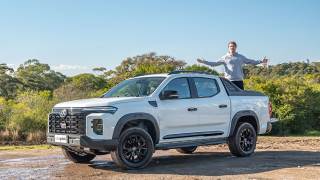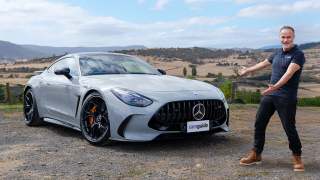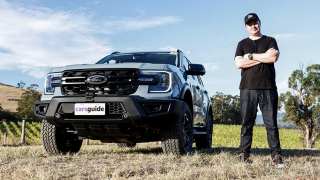
Kia tips product-led recovery
- Hyundai i30
- Kia Cerato
- Hyundai iMax
- Hyundai iLoad
- Hyundai I30 2009
- Kia Cerato 2009
- Hyundai ILOAD 2009
- Hyundai IMAX 2009
- Hyundai News
- Kia News
- Hyundai Commercial Range
- Hyundai Hatchback Range
- Hyundai People mover Range
- Hyundai Sedan Range
- Hyundai Wagon Range
- Kia Commercial Range
- Kia Hatchback Range
- Kia People mover Range
- Kia Sedan Range
- Kia Wagon Range
- Commercial
- Hatchback
- People mover
- Sedan
- Wagon
- Hyundai
- Kia
- Industry news
But Kia has valiantly soldiered on against the odds as sales of fellow Korean Hyundai - which owns 38 per cent of Kia - has shot ahead on the back of the i30, iMax and iLoad and its market share has grown to 7 per cent. However, Kia is pinning its future on a product-led recovery that it expects to increase sales and its market share.
Kia is one of only a handful of brands this year that have increased market share, despite its sales slipping 6.7 per cent. Kia Australia's national sales manager, Alan Crouch, acknowledges there will be comparisions with Kia's performance against Hyundai. "But they have reached a critical mass and we're still some way off," he says.
Crouch says Kia is on track to sell around 20,000 vehicles this year, the same as last year, despite the economic slowdown. "We'll be very happy with that," he says. "We think the market will be around 850,000 and our market share will be about 2.5 per cent compared to 1.8 per cent last year."
Crouch says Kia Australia has done a lot of development work this year "sowing the ground" for future product and more investment. Dealer numbers have grown from 108 to 117 and for the first time there is now a dealer in Alice Springs and Broome. "As we said when we launched Soul, Kia is a different company now," he says.
Crouch says the company has also had a more consistent approach to advertising and marketing, moving away from the budget brand tag. Fresh European-inspired product is also driving new buyers into showrooms. "What we're noticing is that the people who are buying our cars are changing," he says. They are younger, design-driven people, he says. "We're seeing people we have never seen before in a Kia dealership."
Crouch attributes this change to the new Cerato sedan and Soul and their competitive pricepoints. He expects more people will cross shop against Kia with the arrival of the Koup and the new Sorento off-roader in a few months.
However, those looking to compare in the van segment will have less luck. The cheap and cheerful Kia Pregio diesel van won a legion of fans because of its practicality, and also helped underpin Kia sales locally. But since it was withdrawn in 2006 Kia has moved on and a replacement is unlikely, according to Alan Crouch. "The facts are that there is not a product applicable to the Australian market going forward, especially on safety," Crouch says.
Given the high-level of specification and safety now required for the local light commercial van market, Crouch says filling the space left by the Pregio would be difficult.
The Cerato, Soul and Koup also show that Kia is moving on from being a rudimentary carmaker, he says.















Comments